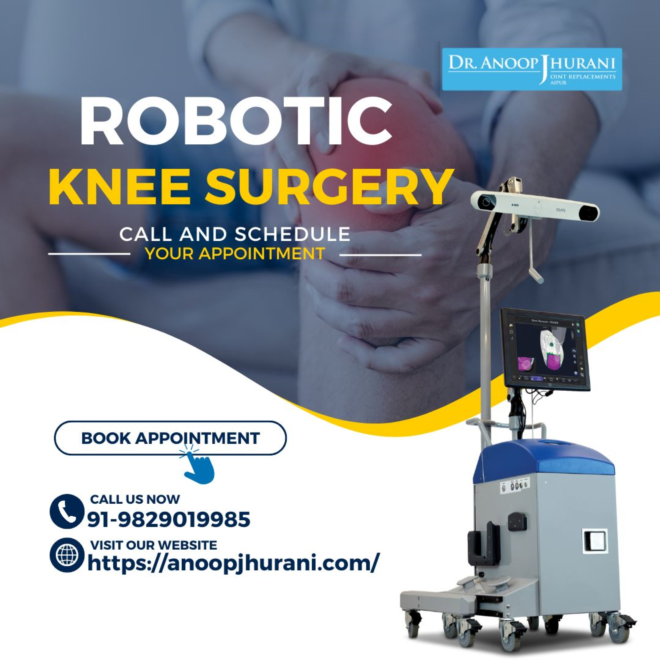
blog address: https://anoopjhurani.com/
blog details: Knee replacement surgery, also known as knee arthroplasty, becomes necessary when there’s significant obliteration of the joint space. This condition typically arises due to severe osteoarthritis or other degenerative joint diseases, where the protective cartilage that cushions the bones wears away completely. As a result, the bones start to rub against each other, leading to severe pain, inflammation, and decreased mobility.
Understanding Joint Space Obliteration
Cartilage acts as a smooth, gliding surface for joint motion and a cushion between the bones in a healthy knee joint. However, with conditions like osteoarthritis, this cartilage gradually breaks down. When the cartilage is completely worn away, the joint space diminishes or obliterates. This bone-on-bone contact is excruciating and can severely restrict movement.
Symptoms Indicating the Need for Knee Replacement
If you are experiencing any of the following symptoms, knee replacement surgery might be the recommended course of action:
• Severe Knee Pain: Persistent and severe knee pain that makes it difficult to walk more than a few blocks, even with the assistance of a cane or walker.
• Resting Discomfort: Knee pain that persists regardless of the time of day and does not subside even when you are lying down.
• Swelling and Inflammation: Chronic knee swelling and inflammation that does not improve with rest or medication.
• Limited Mobility: Difficulty performing daily activities such as climbing stairs, sitting down, or getting up from a seated position.
• Failed Treatments: Persistent knee pain despite trying multiple treatments, including medications, physical therapy, and injections.
The Role of Robotic-Assisted Knee Replacement
Robotic-assisted knee replacement surgery has revolutionized the way knee replacements are performed. It enhances precision and outcomes for patients undergoing this critical procedure. Here’s how:
1. Robotic Precision: With robotic-assisted surgery, orthopedic surgeons can precisely target and replace the damaged parts of the knee. The healthy bone and tissue surrounding the damaged area remain unaffected, ensuring a more natural knee function post-surgery.
2. Smaller Incisions and Less Disruption: Robotic surgery typically involves smaller incisions compared to conventional knee replacement surgery. This minimizes tissue disruption, leading to less postoperative pain and a faster recovery.
3. Faster Recovery: Because the procedure is less invasive and more precise, patients experience quicker recovery times. This means they can resume regular activities much sooner than traditional knee replacement surgery.
4. Better Outcomes: The precision of robotic-assisted surgery results in better alignment and balance of the knee joint, which contributes to the longevity of the knee implant and improved overall outcomes for the patient.
Conclusion
Knee replacement surgery is a crucial intervention for individuals suffering from severe knee pain and mobility issues due to obliteration of joint space. With advancements in medical technology, robotic-assisted knee replacement offers a more precise, less invasive, and highly effective solution. Dr. Anoop Jhurani, a leading orthopedic surgeon in Jaipur, specializes in robotic knee replacement surgery, providing patients with the best possible care and outcomes.
If you’re experiencing debilitating knee pain and mobility issues, consult with Dr. Anoop Jhurani to explore your options for robotic knee replacement surgery and reclaim your quality of life.
keywords: Knee Replacement in Jaipur, Best Knee Replacement Doctor in Jaipur, Computer Navigated Joint Replacement India, Best Hip Replacement Doctor in Jaipur, Robotic Knee Replacement in India, Total Knee Replacement in India, Partial Knee Replacement in Ind
member since: Jun 28, 2024 | Viewed: 42


